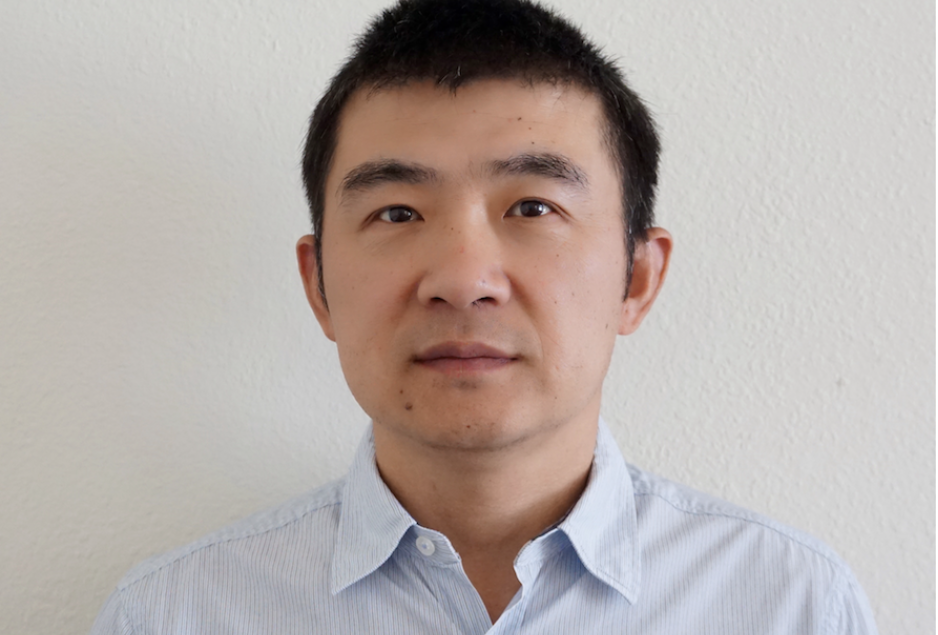Meet Xin Ge – Afterpay’s Chief Technology And Risk Officer

Afterpay is hiring! Check out their roles on pocitjobs.com
Xin Ge has worked as Afterpay’s Chief Technology and Risk Officer for three and a half years. Throughout his career, Xin has learned the value of professional development in creating successful teams.
In this interview, Xin talks about how his experience at big companies like eBay and PayPal prepared him for his role at Afterpay. He also shares what Afterpay is doing to develop diverse teams in the tech industry.
Hey, Xin. Could you kindly explain what you do at Afterpay?
Thanks for having me! I’m currently the Chief Technology and Risk Officer at Afterpay. I grew up in China and I came to the United States for my graduate degrees. I got a Ph.D. in statistics at 24 years old and started my career after that.
I’ve moved around between a couple of really big companies. I started my career at eBay and spent 14 ½ years with the company. Then I worked at PayPal, where I was doing individual data science, analytical work, and then moved to management. After that, I was with Uber for about two years, where I was head of risk management.
I joined Afterpay in 2018 as the Global Chief Risk and Analytics Officer. During the pandemic, I also took on the engineering management role for the company, hence my current position. I have teams in the U.S. and Australia. We also started a center in China and another in Barcelona. It’s a fairly global organization.
You had a Ph.D. before getting into corporate. Did you realize that you have this passion for business management, even when doing your Ph.D. in statistics? Or did you just discover it while working?
Looking back, I can see connections. Even when I was in school, my interest was beyond the science and technology field. However, I don’t think I had a real passion for business management until I began in the field.
Because of my Chinese upbringing, I learned the importance of going to the best schools and colleges. This naturally led me to pursue a Ph.D., which I finished young. During my career at eBay, I learned many things that pushed me toward a career in management.
In 2010, PayPal sent me to China to do risk management and establish a technology center. That experience was an excellent opportunity to practice what I’d learned, gave me a taste of what it meant to take on a global management role, and allowed me to realize that this is what I wanted to do going forward.
Nowadays, most big tech companies have a presence in multiple regions. Because of that, it’s important to have work experience outside of the United States. When I came to Afterpay, I started managing teams in the U.S. and Australia. My skills with managing remote teams helped me in this new role.
Did you find any resistance (as a Chinese immigrant) when it comes to managing teams?
I wouldn’t say resistance. In my mind, resistance means that the manager probably isn’t doing something well. However, there were initial challenges when I first began managing teams. Some of these challenges were due to differences between cultures.
In China, the senior member of the team makes the decisions, and the other people on the team follow that person’s lead. However, it doesn’t work that way in the United States.
I’ve learned that working with teams requires a lot more encouragement and less micromanaging. I need to allow individuals to create and innovate in their roles, even if that means things don’t go the way they should.
The other area where I struggled relates to how I represent my team and their work to stakeholders. In China, we learn that we should be humble about our accomplishments. If we completed ten of something, we’d say we completed eight instead. However, if my team completes ten, I’d misrepresent the hard work that they’ve done if I tell stakeholders they only completed eight.
I’ve had to consciously adjust how I represent my team’s work. While I wouldn’t necessarily call that resistance, it’s one of the challenges I’ve faced while managing teams.
How would you guide someone just starting out in the tech industry? How would you help them reach their full potential?
I found it really helpful when I had opportunities to talk through things with coaches and mentors, especially in conference and training sessions. Both eBay and PayPal invest in training and developing their managers. Since that helped my career so much, I advocate for more learning opportunities for new managers.
My other piece of advice relates to the relationship you have with your direct manager. I believe that building a relationship and trust between yourself and your manager is essential to your success. It allows you to talk about challenges and ask questions openly. That trust can help you develop as a manager.
Are there any initiatives by Afterpay to support people of color in your company throughout the hiring process?
We put a lot of focus on diversity during the recruiting process. We make a dedicated effort to find and interview diverse candidates. Furthermore, we make sure that we have a diverse interview panel throughout the interview process.
I really enjoy that about our company. We also invest in early-stage college recruiting. This allows us to attract more diverse candidates at the beginning of their careers, which increases our overall diversity. These are just a few of the initiatives we have in place to support diversity in our company.



